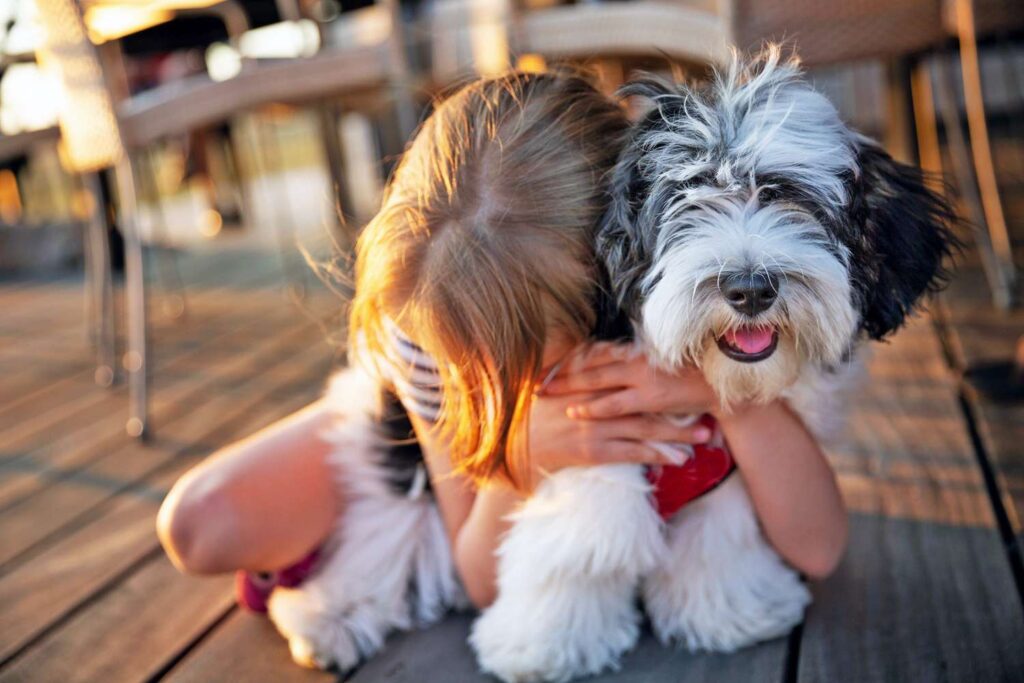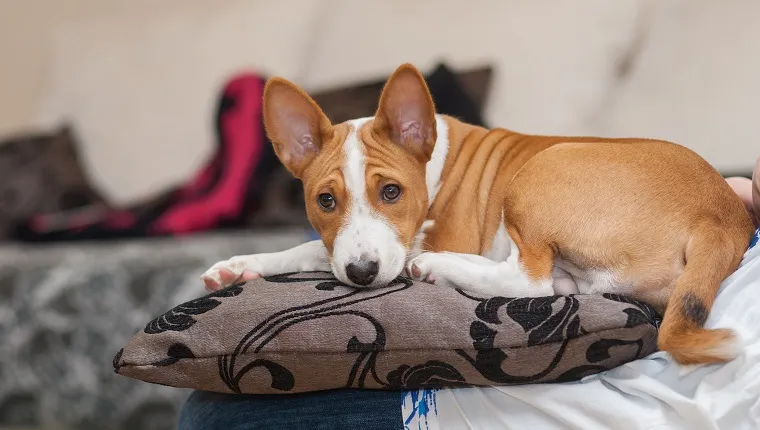Apartment living comes with its own set of challenges and benefits, especially when it comes to choosing the perfect pet. Many urban dwellers find themselves grappling with the decision of whether to adopt a pet and, if so, what kind. Small dogs have increasingly become the top choice for apartment residents, and for good reason. They offer a unique blend of companionship, manageability, and adaptability that larger pets might struggle to match. This article delves into the numerous reasons why small dogs make the best pets for apartment living, supported by comprehensive insights and practical considerations.
Advantages of Small Dogs in Limited Spaces
Space Efficiency
One of the most compelling reasons small dogs are ideal for apartment living is their space efficiency. Unlike larger breeds, small dogs require significantly less room to move around. They can comfortably navigate through smaller living spaces without feeling confined or restricted. This means that even in a modestly sized apartment, a small dog can find plenty of cozy spots to rest and play.
Easier to Exercise Indoors
Small dogs don’t need as much physical space to get their daily exercise. While all dogs need regular walks and outdoor activity, small dogs can burn off energy with indoor play sessions. A simple game of fetch down a hallway or a bit of tug-of-war can suffice. This is particularly advantageous during inclement weather when outdoor activity isn’t feasible.

Lower Noise Levels
While all dogs bark, smaller breeds tend to produce less noise overall compared to their larger counterparts. Their barks are typically less thunderous, making them less likely to disturb neighbors. This is a significant consideration in apartment complexes where noise complaints can be a common issue.
Manageability and Convenience
Easier to Transport
Living in an apartment often means frequent travel in elevators, stairways, and public transport. Small dogs are easier to carry and transport, whether you’re heading to the vet, visiting friends, or just taking a stroll around the neighborhood. Their compact size allows them to be comfortably transported in carriers or even by hand, making outings less cumbersome.
Lower Maintenance Costs
Smaller dogs generally come with lower maintenance costs. They eat less, which means lower food expenses, and they usually have fewer health issues related to size, such as hip dysplasia or arthritis. Additionally, grooming costs are typically lower for small dogs, as they require less time and fewer resources to bathe and trim.

Adaptable to Routine Changes
Apartment living often involves a dynamic lifestyle with varying routines. Small dogs are more adaptable to changes in schedule, whether it’s adjusting to a new work-from-home setup or accommodating sudden travel plans. Their smaller size means they can easily adapt to changes in their environment and routine without significant stress.
Health and Well-being
Better Indoor Air Quality
Smaller dogs shed less fur and dander compared to larger breeds, contributing to better indoor air quality. This is a crucial consideration for apartment dwellers who might have concerns about allergens. Maintaining a clean living environment is easier with a small dog, reducing the risk of allergy flare-ups for residents.
Less Physical Strain
Owning a small dog reduces the physical strain on the owner. Lifting, bathing, and even walking a small dog is less physically demanding than with a larger dog. This makes small dogs an excellent choice for elderly pet owners or those with physical limitations who still want the joy of a canine companion.
Longevity and Companionship
Small dog breeds often have longer lifespans compared to larger breeds. This means that apartment dwellers can enjoy a longer companionship with their pets. The extended lifespan allows for a deeper bond to form between owner and pet, providing years of loyal friendship and joy.
Social and Psychological Benefits
Enhanced Social Interactions
Small dogs can enhance social interactions in urban settings. Their portable size makes them easy to bring to social gatherings, parks, and cafes. They often attract attention and initiate conversations, helping owners to connect with fellow dog lovers and neighbors.
Reduced Stress and Anxiety
Pets are known to reduce stress and anxiety, and small dogs are no exception. Their manageable size makes them perfect for cuddling, which releases oxytocin, a hormone associated with bonding and stress relief. Having a small dog in an apartment can provide emotional support and improve mental well-being.

Encouragement of a Routine
Small dogs help establish and maintain a daily routine. They need regular feeding, walking, and playtime, which encourages their owners to stick to a consistent schedule. This routine can be beneficial for individuals who thrive on structure and discipline in their daily lives.
Practical Considerations for Apartment Living
Compatibility with Apartment Regulations
Many apartment complexes have pet policies that favor small dogs. Restrictions on pet size and breed are common, and small dogs are often exempt from these limitations. This makes it easier to find pet-friendly accommodations without having to navigate complex pet regulations.
Minimizing Damage and Wear
Small dogs are less likely to cause significant damage to an apartment. Their smaller size means they have less destructive potential, reducing the risk of property damage. Additionally, their smaller paws and claws are less likely to scratch floors and furniture, preserving the apartment’s condition.
Ease of Training
Small dogs are generally easier to train. Their manageable size makes them less intimidating during training sessions, and they often respond well to positive reinforcement techniques. Training a small dog to follow apartment rules, such as staying off furniture or using a designated potty area, is typically a smoother process.
Popular Small Dog Breeds for Apartments
French Bulldog
French Bulldogs are a popular choice for apartment living due to their friendly and adaptable nature. They require minimal exercise, are relatively quiet, and their compact size makes them perfect for small spaces.
Chihuahua
Chihuahuas are one of the smallest dog breeds, making them ideal for apartment living. They are highly adaptable and require less exercise than many other breeds, making them easy to care for in an indoor setting.
Pomeranian
Pomeranians are small but lively dogs that can thrive in apartments. They are known for their friendly temperament and can be easily trained to adapt to apartment life. Their small size also means they don’t require a lot of space to feel comfortable.
Dachshund
Dachshunds are affectionate and curious dogs that adapt well to apartment living. Their small stature and moderate exercise needs make them a good fit for urban environments. Additionally, their loyal nature makes them excellent companions.
Addressing Common Concerns
Potty Training in Apartments
Potty training can be a concern for apartment dwellers, but small dogs can be easily trained to use indoor potty pads or litter boxes. This is especially useful for those who live in high-rise buildings and cannot easily access outdoor spaces.
Managing Barking
While small dogs can be prone to barking, proper training and socialization can minimize this behavior. Providing plenty of mental stimulation and exercise can help keep barking under control, ensuring a peaceful living environment.

Separation Anxiety
Separation anxiety can be an issue for any dog, but small breeds often adjust better to being alone for longer periods. Providing toys, treats, and a comfortable space can help alleviate anxiety and keep small dogs content while their owners are away.
Tips for Successfully Raising a Small Dog in an Apartment
Creating a Safe Environment
Ensure that your apartment is safe and comfortable for a small dog. This includes securing loose wires, keeping harmful substances out of reach, and providing plenty of soft, cozy spots for your dog to rest.
Regular Exercise and Mental Stimulation
Even though small dogs need less space, they still require regular exercise and mental stimulation. Short, frequent walks and interactive toys can keep them engaged and healthy.
Consistent Training and Socialization
Consistent training and socialization are key to raising a well-behaved small dog. Enroll in training classes, arrange playdates with other dogs, and expose your pet to various environments to build their confidence and social skills.
Establishing a Routine
Establish a routine for feeding, walking, and playtime. This not only helps your dog feel secure but also ensures they get the necessary care and attention they need each day.
Conclusion
Small dogs make the best pets for apartment living due to their adaptability, manageability, and lower maintenance needs. Their compact size allows them to thrive in limited spaces, and their friendly, loyal nature provides endless companionship. By choosing the right breed and taking the necessary steps to create a comfortable living environment, apartment dwellers can enjoy all the benefits of having a small dog. From lower noise levels to easier transportation, small dogs are the perfect fit for urban living.





















